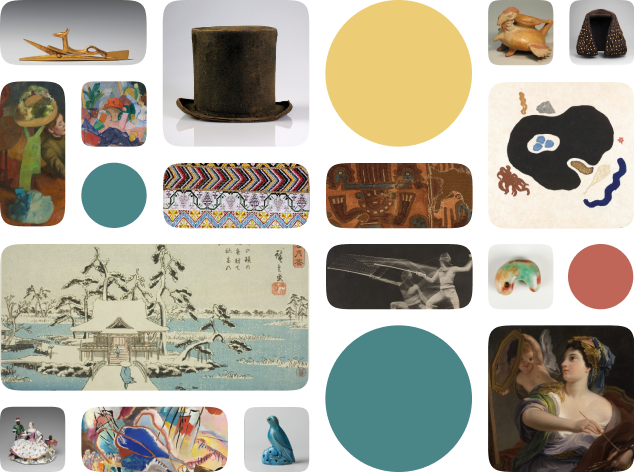"The Wilde Woman of Aiken," from the "Aiken and Vicinity" series
Creator Name
Cultural Context
Date
Source
About the Work
James A. Palmer circulated this photograph of a young Black woman as a cabinet card. Cabinet cards are similar to trading cards and were especially prevalent in the mid-19th century. Cards could feature advertisements, portraits, and most shockingly, stereotypical and offensive imagery of non-white peoples.
The woman wears a floral dress and sits next to a table with an Edgefield face jug. The jug contains a large sunflower and a lily. A horseshoe on a chain rests on her lap and her hands are clasped together in prayer against the side of her face. The flowers and horseshoe are symbols of the Aesthetic Movement. Yet in this photo, taken in the Post-Reconstruction South, the horseshoe recalls the gruesome practice of branding enslaved individuals.
Palmer staged and shot this photo in Aiken, South Carolina in 1882 as part of a pair of images satirizing Oscar Wilde and Aestheticism.
Work details
Title
Creator
Worktype
Cultural Context
Material
Dimensions
Technique
Language
Date
Provenance
Style Period
Rights
Inscription
Location
Source
Subjects
Topic
Curationist Contributors
Related Content
All Works in Curationist’s archives can be reproduced and used freely. How to attribute this Work:
Help us improve this content!
Save this work.
